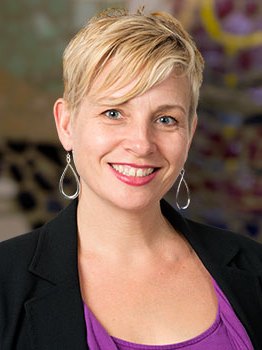A grant from the W. K. Kellogg Foundation to the University of Houston Graduate College of Social Work (GCSW) will support a new effort for Latina mothers and their families.
The $500,000 grant will create the Latina Maternal and Family Health Center at UH,
an academic -community partnership that joins forces with community agencies to serve
children and families in need. Its first project will develop a culturally responsive
way to educate about and lower postpartum depression (PPD) among Latina new moms. 
“Mothers are often at the core of a family unit. Her mental health status can affect family functioning,” said McClain Sampson, assistant professor in the college. “Poverty, acculturation stress, cultural beliefs and stigma put Latinas at high risk for developing depression during or after pregnancy. Early screening and intervention is critical.”
Sampson says a third of women diagnosed with PPD have the onset during pregnancy, and support is one of the strongest buffers. Still, Latina immigrants who experience isolation, language barriers and limited health care access are at higher risk of PPD.
“This project is meant to address that disparity,” she said.
The two year project, Culturally Responsive Intervention to Improve Maternal and Child Wellbeing, targets six cities, including Houston. Latina moms and their families first will be recruited to participate in a focus group to assess what they know and believe about postpartum depression. This group will learn about Sampson’s current research and intervention project called PST4PPD—Problem Solving Tools for Postpartum Depression—which may be updated based on the group’s feedback. Then community health care workers, over the course of five sessions and follow-ups, will deliver that home-based intervention to Latina moms who show signs of postpartum depression.
“These sessions will be about problem solving, so that moms can be pro-active,” Sampson said. “As long as I’ve been studying maternal depression, a key element we don’t really address is how low mothers’ self-efficacy can get. Even when you’re not dealing with depression, it’s a time of great doubt. It’s a huge responsibility, even if you ‘have it all.’ I wanted to target her feeling better about her being able to handle things.”
The project marks an important partnership between academics and community agencies, working together to target community issues. The two-year project also serves as an avenue to maintain ties to communities over time, so that the new center stays in tune with community needs.
“The issues we work with, we have to be accessing the community as experts. It’s disrespectful not to,” she said.